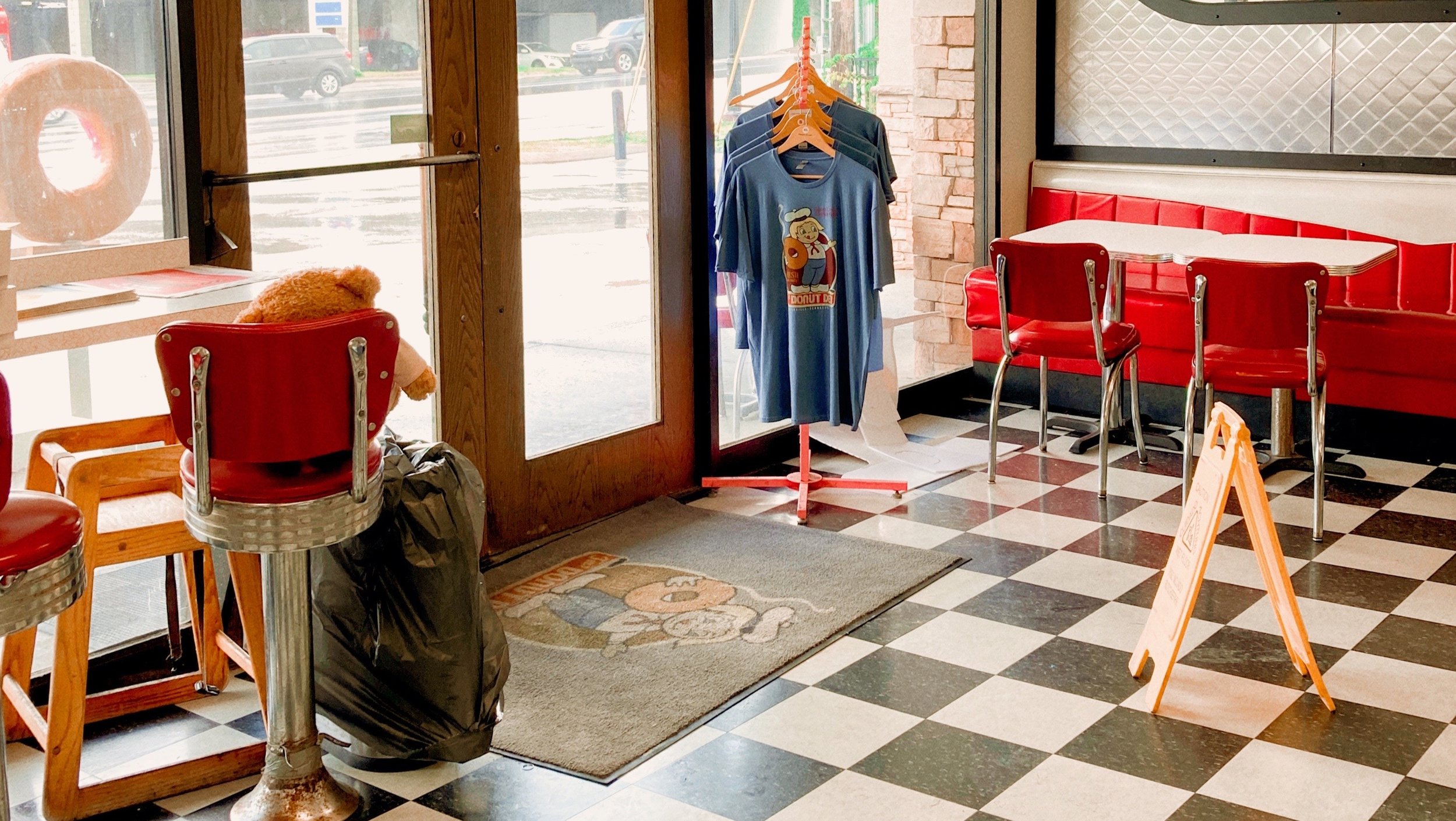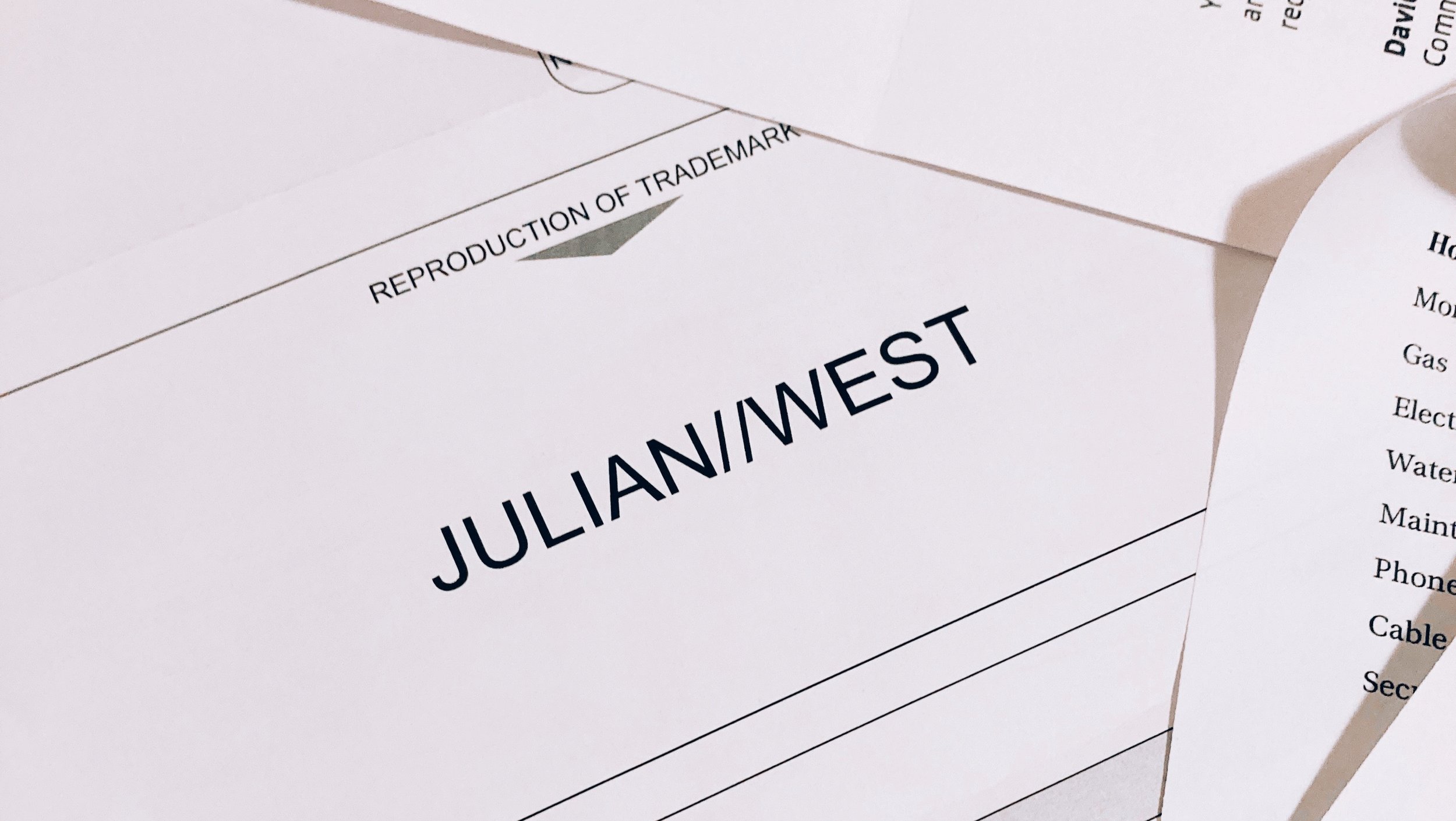How to Start a Small Business Even If You're Struggling for Ideas
Is it hard to start a business? I asked my friend’s mom this question in my twenties. As the owner of her own small business, her decades-long career intrigued me.
While other parents sat in traffic making their office commutes, she was sitting in her home office. (Obviously, this isn’t as exciting now that so many people work remotely, but it was mind-blowing in the early aughts.)
She told me it wasn’t hard—that anyone could do it. “Why? Are you thinking of starting your own business?” she asked. I told her maybe someday. It’s funny to look back years later, now that I’ve made one with my sister.
My sister and me working from our respective home offices.
Hearing that entrepreneurship wasn’t impossible had a huge effect on me. I didn’t know what I wanted to do, but I knew I wanted to do something someday. So let’s talk about how to start a small business from scratch, even if you’re not sure what you want to do yet.
How to start a small business
Pick an idea by listing your skills
Choose a name (we have a tutorial here)
Create your marketing materials (logo, website, etc.)
Make it official
Pick an idea by listing your skills
Choosing a business idea can sometimes be the most difficult part of creating a company! It’s easy to think, “I don’t have any skills,” but that’s not true. Instead of listening to the negative voice that says you have nothing to offer, silence it by listing things you like to do.
Do you like to write? Draw? Clean? Any of these skills can be marketable. Once you’ve written out all the things you like to do, put a check next to the tasks you’d be willing to do for money. These could be the key to starting a small business of your own.
I want to start a business but have no ideas
If you’re still feeling stuck, we’ve listed some small business ideas below.
Sell items online - There are so many ways to do ecommerce, whether it’s through your own site or a third party like Amazon or Etsy. (Be sure to read our Etsy tutorial here.)
Sell items in person - You can sell handmade, vintage, or refurbished items at flea markets, farmer’s markets, Facebook Marketplace, and more.
Become a virtual assistant* - Administrative tasks take up a major chunk of time for businesses. By marketing yourself as someone who can take on those tasks, you can earn money using your organizational skills.
Clean professionally - Most of us don’t have much time to devote to cleaning, and it might surprise you how willing households are to pay for things like dusting and vacuuming.
Become a freelance writer - Businesses are constantly looking for content, and you may be just the person to offer it. Build a portfolio, and if you have a niche (e.g. IT, fintech, etc.), even better.
Offer services for newborns and prenatal care* - New parents have a lot to absorb. Doulas and night nurses can take some of the fear out that process.
Become a photographer - While the photography industry is saturated, carving out a niche for yourself can be lucrative. Consider businesses like River City TinType or Tertiary Sight, which are unique photographers with passionate followings.
Repair cars* - With gig apps and car repair apps, you can now put your services to use on your own schedule.
Consult businesses* - Maybe you have a lot of marketing or logistics knowledge. Maybe you know how to scale a company. If so, consultations can be a profitable way to share your skills.
*Listed in NerdWallet’s most profitable businesses of 2022
Choose a name for your business
We recently published a deep-dive into business naming conventions and how we formed our own name. In a nutshell, it’s difficult to find a name that isn’t taken already when starting a small business. But it can be done!
There are several ways to brainstorm business name ideas, whether it’s using a name, combining words, or making something up. In the end, it’s important to do your research and land on something you don’t mind saying or writing all the time. But don’t get too stuck on this step, because names aren’t necessarily forever.
Create your marketing materials
Three of the most important marketing assets your small business can have: a logo, social media, and a website. Let’s start with the logo.
Since you’re just starting a small business, you may not have money for a logo just yet. You can always use something in the interim until you’re able to hire creative professionals to create a more permanent logo.
A logo legitimizes your business, helping it stand out and generate a sense of authenticity. Let’s say you’re looking for a local electrician on Instagram. There are two accounts: One has an official-looking logo, whereas the other has a photo of a lightbulb. You’re likely going to trust the official-looking account, because the logo promotes a sense of professionalism.
That brings us to social media. I didn’t think social media would make a difference when we were just starting our business, but I couldn’t have been more wrong. Most of our prospective clients have come from LinkedIn and Instagram. With a regular posting cadence, you consistently get the word out about your business and let people know what you’re doing.
Finally, you likely need a website if you’re starting a small business. Like logos, websites give your small business that touch of authenticity. You can often purchase domain names inexpensively and pay an affordable monthly fee. Your website can provide pricing details, contact forms, and valuable information about your business.
Make it official
Once you start your small business, it’s a good idea to make it official. You want to be ready come tax season, and choosing what type of business you have can simplify this process. (Note: I’m not a legal professional; this was just helpful for us.)
If you’re in the US, the government’s small business resources are extremely helpful, especially since you’ll likely have to pay taxes on your business.
Most small businesses fall under one of these categories:
Sole proprietorship - You’re the business, and the business is you. According to the SBA, “You’re automatically considered to be a sole proprietorship if you do business activities but don’t register as any other kind of business.” Contractors and one-person companies often fall into this category.
Pros: You can begin business right away; less paperwork on the front end; tax right-offs in your own name
Cons: Your business assets and liabilities aren’t separate from your personal ones; banks are less likely to lend to sole proprietorships
LLC - According to the SBA, a limited liability company protects you and your personal assets from liability in case your LLC faces bankruptcy or lawsuits, and you can “take advantage of benefits of both the corporation and partnership business structures.”
Pros: Good choice for medium or higher-risk businesses; protects your personal assets in most cases; lower tax rate than corporations
Cons: LLC rules can change depending on the state
Partnership - A sensible choice for people wondering how to start a small business with two or more members. According to the SBA, “partnerships can be a good choice for businesses with multiple owners, professional groups, and groups who want to test their business idea before forming a more formal business.”
Pros: Good for new businesses with more than one member; simple structure
Cons: Different partnership types to choose from (limited partnerships and limited liability partnerships), which have nuanced differences
There are other organizations, including numerous corporation types, nonprofits, and co-ops. If you’re unsure of your business type, consider talking to a legal professional or exploring the SBA’s business structure resources.
Conclusion
If you’re wondering how to start a small business, it might be simpler than you think! All you need is an idea, a name, and the drive to form and market your business.
And if you need help with the marketing and branding side of things, we’re here to help. We offer solutions for businesses of all sizes, and our first consultation is always free. You can contact us here.






